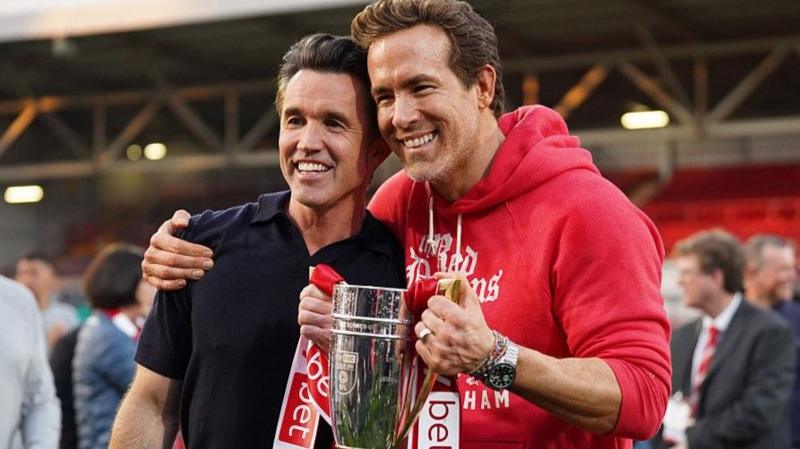Wrexham Effect Revolutionizes Non-League Football: Find Out How!




In the charming world of football, astonishing transformations are happening far from the glitzy spotlights of the Premier League. Nestled in local communities, non-league clubs have long been the heart and soul of British football, epitomizing grassroots sportsmanship and enduring local spirit. However, a new trend is swiftly emerging, colloquially known as the 'Wrexham effect,' sparked by celebrities investing in these humble teams, sparking a renaissance that is reshaping the landscape of lower-league football.
The phenomenon began picking up steam when Hollywood actors Ryan Reynolds and Rob McElhenney made headlines with their unexpected acquisition of Wrexham AFC. Located in North Wales, Wrexham AFC was established in 1864, making it one of the world's oldest football clubs. Traditionally competing in the lower tiers of the English football pyramid, the club had experienced its fair share of struggles, both on and off the pitch. The arrival of Reynolds and McElhenney was more than just a financial windfall; it was a massive boost to morale and brought significant global attention to a club that many outside the UK had never heard of.
This high-profile takeover has had a ripple effect across the non-league scene. Call it inspiration or strategy, but following Wrexham's example, other non-league clubs have started attracting investments from famous personalities, enhancing their profiles and expanding their aspirations. These investments are not just about injecting capital but about bringing innovative ideas, marketing expertise, and international exposure, which were once considered beyond the reach of many grassroots clubs.
One such benefactor of this trend is Bath City FC, which welcomed film director Ken Loach, a well-known supporter and Bath native, onto its board. His involvement has helped increase the visibility of the club, drawing larger crowds and more ambitious projects, including infrastructure improvements and community engagement programs.
The 'celebrity effect' has also catalyzed changes in the way these clubs operate and engage with their communities and fans. Social media and global merchandising are now part of the strategy, where clubs leverage famous faces to amplify their reach and draw in a worldwide audience. For instance, Dulwich Hamlet in South London has seen an uptick in international visitors and online followers, thanks to strategic partnerships and celebrity endorsements that have put them on the global map.
Moreover, the impact of these investments goes beyond the tangible. There's an intangible yet potent buzz — a revitalization of spirit and ambition. Attendances have surged as more fans, both local and global, flock to see these storied clubs play, drawn by the allure of supporting a team backed by some of their favorite personalities.
Economically, the communities hosting these clubs also benefit. Increased match-day attendance translates directly into local spending in pubs, restaurants, and shops. This financial injection supports local economies and can be a lifeline for small businesses operating near these clubs.
This trend is perhaps a shift towards a more sustainable, community-focused model of football club ownership and management. It challenges the narrative that only elite clubs deserve the spotlight and substantial investments. Here, success is measured not just by wins and losses but by the impact on the community and the joy it brings to fans and locals alike.
Despite the glamour and the new possibilities, challenges remain. Ensuring long-term sustainability, managing expectations, and keeping the community at the heart of operations are essential considerations. Yet, if the ‘Wrexham effect’ continues to inspire and revitalize, the future of non-league football looks not just brighter but significantly more exciting.
By blending the passion for football with celebrity influence and community engagement, these clubs are writing a new playbook for success in sports, proving that with the right mix of enthusiasm and investment, small clubs can dream big and achieve even bigger.